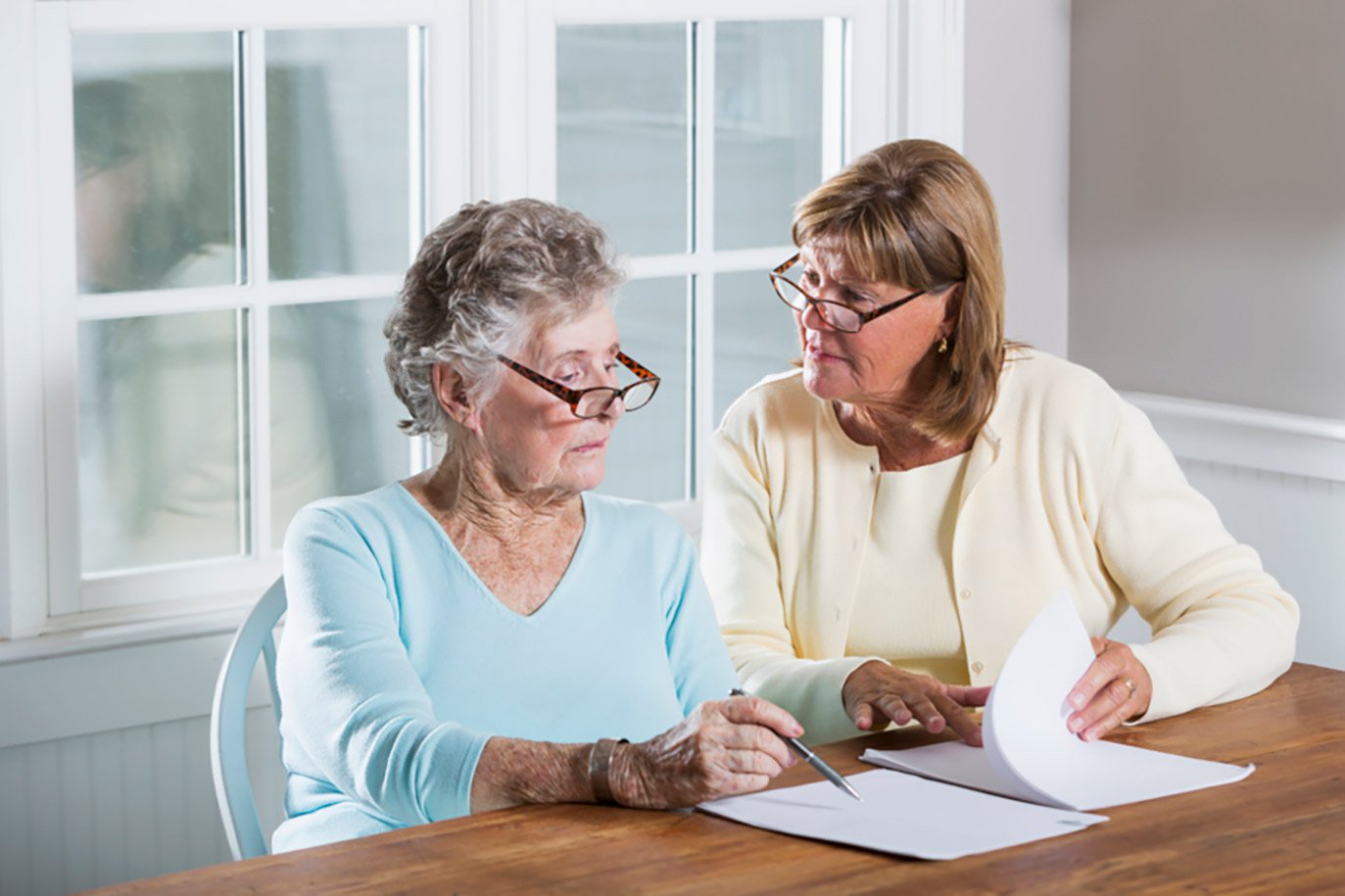
Being confined is hard on morale and this can become especially complicated if you are taking care of a loved one with cognitive losses in your home. In the face of your worry and theirs, how can you manage your stress and prevent tensions?
Whether your loved one has Alzheimer’s or another form of dementia (in French), the main difficulty will be getting them to follow the confinement rules, hand washing protocols and other protection measures, as well as social distancing for medical appointments. More than anyone, you know that people with cognitive losses are very sensitive to the atmosphere around them and to changes in their daily routine.
To facilitate communication and maintain a relaxed atmosphere with your loved one, using a reassuring, positive and light tone when you speak to them will always help in explaining the situation and its consequences to them.
Your loved one may express their concerns, hence the importance of talking with them, to help them understand better and reassure them. You may not have all the answers but fostering dialogue will help mitigate their anxiety. With your knowledge of their personality and the evolution of their cognitive decline, you have a wealth of information that you can use to find the right words. On this topic, the Federation of Quebec Alzheimer Societies has valuable advice on how to communicate well with your loved one and thus maintain a good relationship.
Talking about the coronavirus is one thing, but explaining the restrictions associated with it, like handwashing frequency, is another. The best solution remains showing what needs to be done. In addition, using a dispenser filled with a soap that smells nice to them or singing a song during the process are some small gestures that will make the procedure less tedious. If you were already in the habit of posting little reminders for your loved one, you could always use them to remind them to wash their hands. If you have to travel with them to their medical appointments, plan to have hand sanitizer or disinfectant wipes with you.
You know that starting these actions will require many repetitions. You may get fatigued and lose your cool, and your calmness and patience may be put to the test. It's in these moments that new habits may help you cope better with the confinement. Maintaining use of structured time balances this phase full of uncertainties, but you and your loved one still need to remain active and creative during this period. Doing things together that you enjoy will definitely bring a feeling of well-being and reduce tensions.
Starting a conversation around photos, objects, letters ... can reignite memories. Singing, dancing or just listening to music has the power to improve your mood. Taking care of plants or pets can provide a feeling of peace. You can still enjoy the sunny days ahead, while respecting the rules: on your balcony or patio or in your garden, to get your full supply of vitamin D! Manual activities, such as colouring, knitting or even simple puzzles, help with concentration and reflection. Physical activities are also possible, regardless of your condition or that of your loved one.
Since visits are not allowed, don’t hesitate to call or have a video chat with friends and family. You can maintain contact and reassure your loved one, who will still be able to talk to them, despite the distance.
You have probably already used most of these tips to keep your loved one busy and spend some nice times with them. Maybe you will have more opportunity to enjoy such times now? It is not at all rest, but the difference is that you can take more time to appreciate “new rituals.” Also remember – insofar as possible – to keep some time for yourself. Our article Taking care of your mental health during confinement offers some solutions for “recharging your batteries” or offering you respite, even for a few minutes.
If you need advice, someone to talk to or information, or if the situation becomes too difficult, the Federation of Quebec Federation of Alzheimer Societies remains available during the confinement. And don’t hesitate to get in touch with our counsellors at the Caregiver Support service, available every day from 8 am to 8 pm.
By telephone: 1 855 852-7784
By email: info-aidant@lappui.org
Cap Retraite. Coronavirus et Alzheimer : comment protéger et rassurer son proche. 2020. [in French].
France Alzheimer & Maladies apparentées. Confinement : comment prendre soin de son proche malade?2020. [in French].
Need to talk?
Contact our Caregiver Support Helpline for counselling, information and referrals.
Every day from 8 a.m. to 8 p.m.
Free of charge.